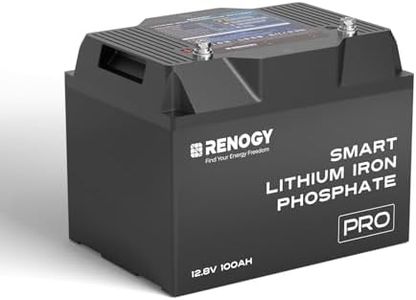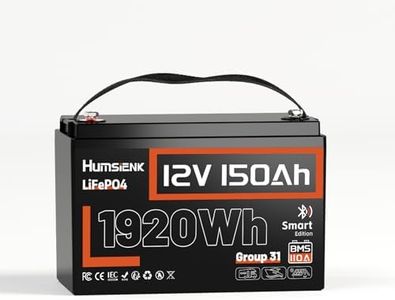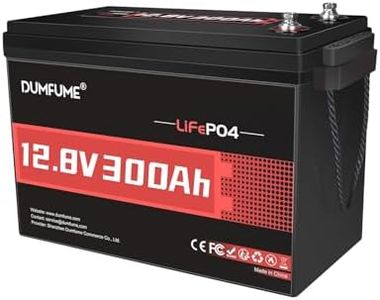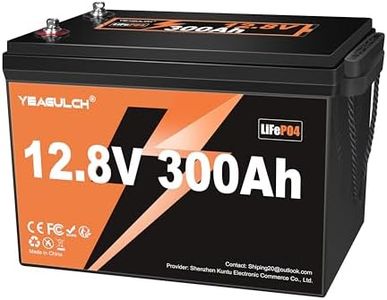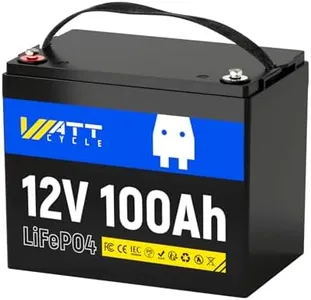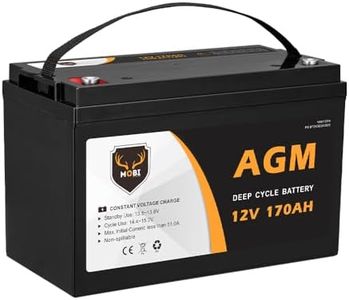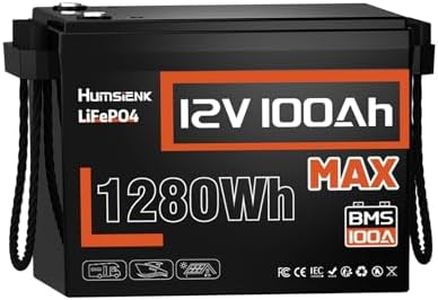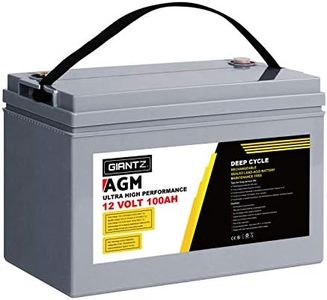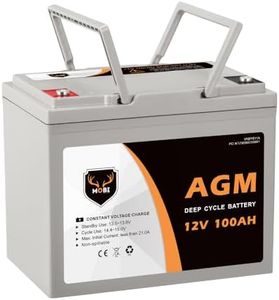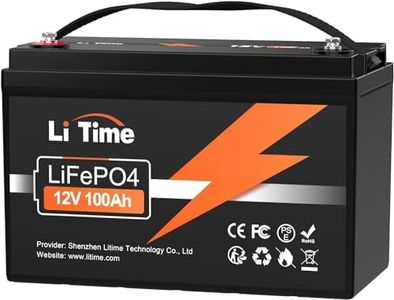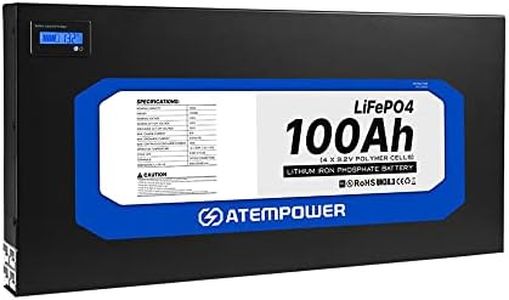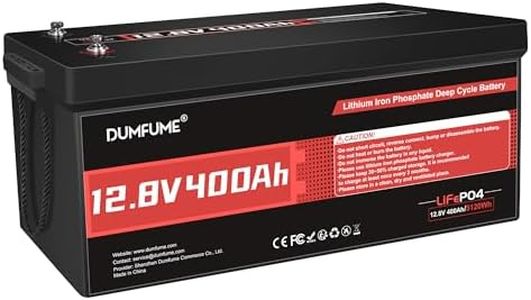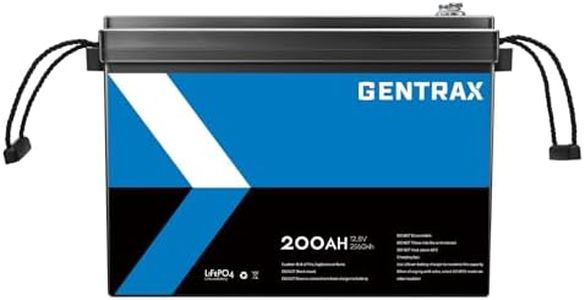We Use CookiesWe use cookies to enhance the security, performance,
functionality and for analytical and promotional activities. By continuing to browse this site you
are agreeing to our privacy policy
10 Best Rv Batteries
From leading brands and best sellers available on the web.Buying Guide for the Best Rv Batteries
Choosing the right RV battery is crucial to ensure you have a reliable source of power for your trips, whether you’re camping off-grid or staying in a campground. The best RV battery for you will depend on how you use your RV, how much power you typically need, and how long you need your battery to last between charges. It’s important to understand the main types of RV batteries and the key specifications that distinguish them. Evaluating these features with your travel style and energy needs in mind will help you pick an RV battery that keeps your adventures comfortable and worry-free.Battery TypeThe type of battery refers to how it is built and the chemistry inside. The main types are lead-acid (including flooded and AGM) and lithium. Lead-acid batteries are older and usually less expensive, but require maintenance and are heavier. AGM batteries are sealed, maintenance-free, and handle vibrations better. Lithium batteries are lightweight, recharge faster, last much longer, and can be used more deeply without damage. For occasional or light use, lead-acid types might be suitable, but for frequent travel, long-term off-grid stays, or anyone who wants less maintenance, lithium is often the best choice.
Capacity (Amp-Hours, Ah)Capacity is measured in amp-hours (Ah) and tells you how much energy the battery can store. The higher the amp-hour rating, the longer the battery can supply power before needing a recharge. Smaller capacities (under 100 Ah) are suitable for light use like running lights and charging devices for a short period. Medium capacities (100-200 Ah) work well for people who run more appliances or want to last a couple of days without plugging in. Large capacities (over 200 Ah) are best for extended trips, boondocking, or for those who use many electrical devices. Think about what devices you plan to run and how long you expect to run them off-battery—this will guide your needed capacity.
VoltageRV batteries typically come in either 6-volt or 12-volt varieties. Most RV systems are designed for 12 volts. Using two 6-volt batteries connected together can provide more durability and sometimes longer life, but can also take up more space. Choose the voltage that matches your RV’s setup. If in doubt, stick with 12-volt, as it is the most common and compatible with most RV appliances.
Deep Cycle AbilityDeep cycle batteries are designed to be regularly discharged and recharged and are different from car batteries that are used mainly for starting engines. This feature is important because you want a battery that can supply steady power over long periods and can handle being emptied and refilled many times. Always make sure your RV battery is labeled as deep cycle for safe and reliable performance with RV use.
Maintenance RequirementsSome batteries, like traditional flooded lead-acid types, require you to check water levels and occasionally add distilled water. Maintenance-free options, such as AGM and lithium batteries, don’t require this attention. If you don’t want to worry about battery upkeep, prefer a sealed, maintenance-free type. If you don’t mind occasional checks and want to save on upfront costs, a traditional battery might be fine.
Weight and SizeRV batteries can vary a lot in weight and size. Lithium batteries are much lighter than equivalent lead-acid batteries, making them easier to move and install. If you have limited storage space or need to keep your vehicle within a certain weight limit, pay attention to the battery’s dimensions and weight. Check where your battery will be stored and measure carefully before buying.
Lifespan (Cycle Life)The cycle life of a battery tells you how many times you can charge and discharge it before its performance starts to drop. Lithium batteries usually last thousands of cycles, while lead-acid batteries might last a few hundred. If you use your RV often or want your battery investment to last for many years, choosing a battery with a higher cycle life will serve you better.
